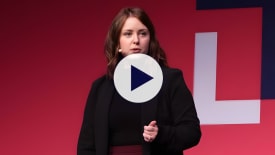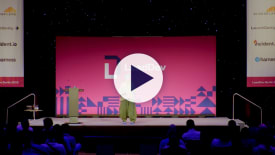
Sign up to our Originals newsletter
Subscribers get the best engineering leadership content in their inbox every week.
Latest
-
What 7 years as a contractor taught me about onboarding
How to enable your developers to make an instant impact.
Editor’s picks
What is an engineering manager? Taking the step up
This fulfilling role takes you a step beyond a lead engineer. Find out how to best showcase your skills to land it.

London • June 2 & 3, 2026
LDX3 London agenda is live! 🎉
Essential reading
On our Engineering Manager playlist

The Manager’s Path: Camille Fournier in conversation
A guide for tech leaders navigating growth and change.

Things I got wrong when preparing for my first Engineering Manager role
Ferit Topcu shares his own experiences in this transition, the errors I made, and how I overcame them.

What we talk about when we talk about leadership
Exploring key leadership themes from years in tech, this talk offers guidance and practical strategies to help engineers become the leaders they want to be.

On-call revolution: Building a culture of ownership and collaboration
Discover how innovative on-call rotations empower developers, foster team collaboration, and reduce complexity, creating a cohesive, ownership-driven culture that enhances service quality.

Managing authentically across levels
Learn how to manage engineers at all levels with practical tips for adapting your style to support growth and foster a thriving, high-performing engineering team.
More for Engineering managers
-
How the right workflow can catapult productivity
Do you find that your team constantly misses deadlines and feels miserable in the process? It might be a workflow problem.
-
Tech CEOs reckon with the impact of AI on junior developers
CEOs are concerned that the rise of AI tools like Copilot and GPT is causing junior developers to lose touch with core coding skills.
-
AI-first hiring is everywhere and it’s not slowing down
Engineers might start being penalized for not using AI in technical interviews.
-
The best developer learning platforms 2025
The top online learning platforms to help any developer improve their skills.
-
How Jit overcame developer resistance to shift to Cursor
Israeli startup Jit overcame engineer pushback and boosted productivity by transitioning from JetBrains to the AI-powered coding assistant Cursor.
-
Microsoft slashes management in latest round of layoffs
The layoffs signal a continued shift towards a flatter org.
-
Is AI-assisted coding an incident magnet?
Now that AI-assisted code is making its way into systems, should we be worried about how it affects SRE?
-
Why untested AI-generated code is a crisis waiting to happen
Here’s why the sector should embrace the principle of more haste, less speed.
Videos for Engineering managers
-

Debugging self-doubt: A framework for building confidence
Explore a practical framework for tackling self-doubt with a debugging mindset to build lasting confidence and stronger teams.
-

The twin mandate: What leaders still don’t get about observability
Learn why many teams miss observability’s full potential and how leaders can unlock exceptional engineering performance through it.
-

The joy of being wrong
Discover how rethinking assumptions drives better decisions, strengthens leadership, and builds more adaptive, collaborative teams.
-

Target architecture – Align. Execute. Deliver.
Explore how defining a clear target architecture boosts alignment, speeds up execution, and scales teams through better decision-making.
-

Machine learning in production. The hidden effort
Uncover the hidden engineering work behind real-world ML products, from scaling and orchestration to cost control and team alignment.
-

Couple’s therapy for product and tech
Learn how to build a strong, lasting partnership between product and tech through alignment, trust, and intentional collaboration.
-

Journeys in diversity – what difference really means
Discover what true inclusion means by exploring practical ways to support neurodivergent colleagues and create genuinely diverse teams.
-

We brought AI into our sprints, here’s what changed
Explore how integrating AI into product sprints changed team habits, improved delivery, and revealed what works and what breaks in practice.
-

Rethinking interviewing in an AI era
Explore how to redesign technical interviews for an AI era by focusing on real-world thinking, communication, and human-centered evaluation.
-

Migrations done right: Success stories and lessons learned
Learn proven strategies for executing large-scale system migrations safely, using incremental rollouts, clear planning, and strong stakeholder communication.
-

Latency, load, and leadership: Building a team nervous system
Discover how to build feedback systems that detect early stress signals, enabling healthier, more resilient, and productive teams.
-

Building AI into critical systems: Lessons learned
Learn how the Financial Times built AI into paywalls and retention systems, navigating trade-offs, risks, and real-world complexity at scale.


